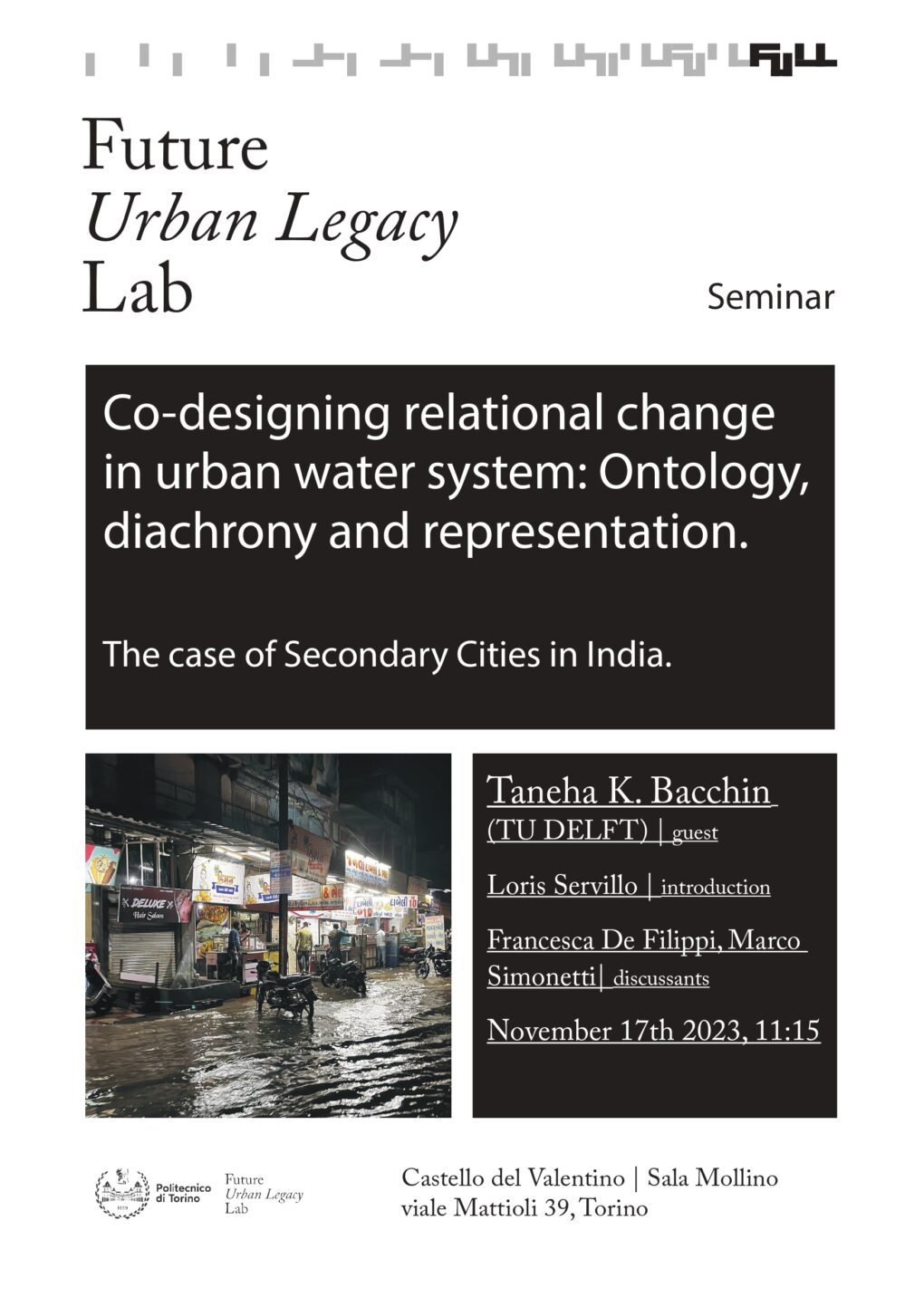Co-designing relational change in urban water system: Ontology, diachrony and representation.
The case of Secondary Cities in India.
Contemporary and converging trends, crises and risks, including natural disasters, economic crises, social inequality, climate and demographic change, demand new approaches in managing and using environmental resources. Taneha K. Bacchin reflects on the possible role of water as a leading driver of sustainable change in fast-growing secondary cities in India, and on the sustainability transitions that are needed for short- and long-term mitigation of, adaptation to and coping with urgencies and uncertainties.
Taneha K. Bacchin is an architect, urban designer, researcher, and educator working at the intersection of urban design, landscape architecture, environmental sciences, and humanities. She is Assistant Professor and Coordinator of Research of Urban Design at Faculty of Architecture and the Built Environment, TU Delft. In her projects and teaching, she investigates the nexus between space, ecology, culture, and politics in the design and planning of critical and highly dynamic landscapes. Her current work focuses on situated (site/context/culture-sensitive) forms of urban design related to environmental fragility, increasing extreme weather events and climate, and resource depletion, with projects in the North Sea, the Arctic, Brazil, South Africa, and India. She is co-leader of the Research Group Delta Urbanism, head of Transitional Territories Graduation Studio and chief-editor of the Journal of Delta Urbanism. Her work has been funded and published internationally and exhibited at the São Paulo Architecture Biennale 2013, the Venice Architecture Biennale 2002 and 2018 (Dutch, Brazilian and Venetian Pavilions), and the International Architecture Biennale Rotterdam IABR 2022.
She is Principal Investigator and Lead Coordinator of the NWO-DST ‘Water4Change’ (W4C) Research Programme, Cooperation India-The Netherlands (2019-2025): a transdisciplinary programme by eleven knowledge institutions focusing on water sensitive and cultural situated design for secondary cities in India. W4C is a flagship programme of the govermental Cooperation India-The Netherlands and part of ‘Water for Impact’ – projects under ‘actionable science’ by TU Delft Global Initiative.
